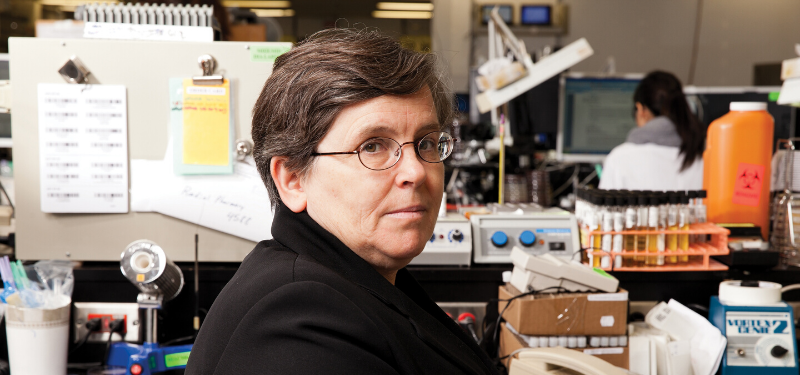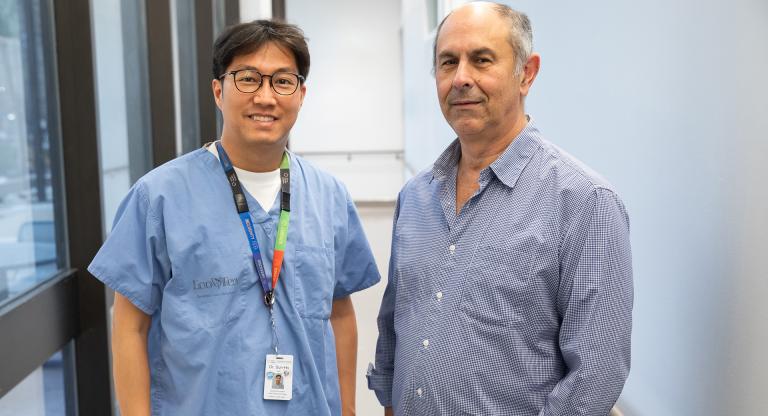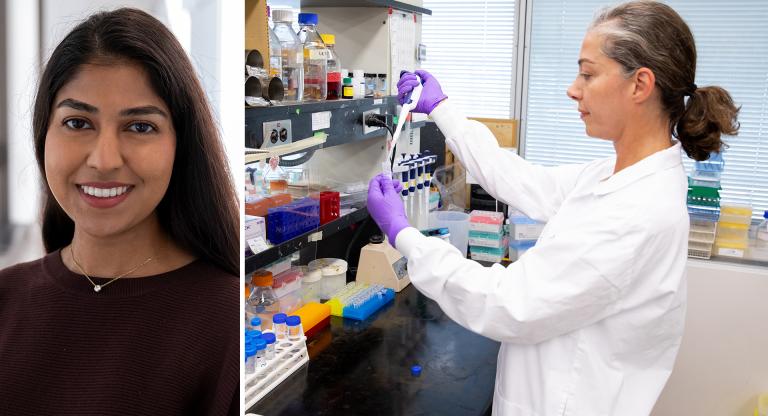Sinai Health to test if antiviral drug can control COVID-19 outbreaks in long-term care homes

A Toronto research team will be working with a Canadian biopharmaceutical company to launch the first clinical trial into whether an anti-viral medication can control COVID-19 outbreaks in long-term care homes.
Dr. Allison McGeer, senior clinician scientist at the Lunenfeld-Tanenbaum Research Institute at Sinai Health and a professor of epidemiology at University of Toronto’s Dalla Lana School of Public Health, is the trial’s principal investigator. She plans to enrol about 760 subjects, both residents and staff, at 16 long-term care homes in Ontario.
“While everyone is working hard to prevent outbreaks in long-term care homes, it is also important that we can respond if new outbreaks occur,” said Dr. McGeer. “As vaccines and treatment for COVID-19 are still unavailable, preventive medication is an option we should be exploring.”
Dr. McGeer and infectious disease and clinical trials specialists at the University of Toronto, Revera Living, Sunnybrook Health Sciences Centre and Unity Health Toronto will conduct the trial, which is sponsored by biopharmaceutical company Appili Therapeutics Inc.
“I’d also like to thank the University of Toronto COVID-19 Action Initiative and Fast Grants for their funding to build the infrastructure to test this and other antiviral medications for the control of outbreaks of COVID-19 in long-term care, and the staff of Extendicare and Medical Pharmacies Group Limited for their assistance in the design and planning for this study,” said Dr. McGeer.
Favipiravir is a broad-spectrum antiviral approved in Japan under the brand name Avigan. In 2014, Japanese health authorities approved Avigan as a treatment and stockpile countermeasure for pandemic influenza outbreak.
Recent studies suggest favipiravir may have potential use for the treatment of COVID-19. Researchers in Wuhan, China, reported in early February that favipiravir demonstrated anti-viral activity in vitro against SARS-CoV-2, the virus that causes COVID-19.
The primary objective of the Phase 2 trial is to evaluate the efficacy of favipiravir for residents and hydroxychloroquine for staff, compared with a placebo to prevent COVID-19 outbreaks in long-term care homes.
Recruitment for the trial is expected to begin imminently. Dr. McGeer said the goal is to see whether favipiravir can control outbreaks of COVID-19 once they have started.
“Given the strikingly high fatality rate from COVID-19 in long- term care facilities, there is a particularly urgent need for randomized trials that explore ways of protecting the most vulnerable members of our society,” said co-principal investigator Peter Jüni, a senior epidemiologist at St. Michael’s Hospital and professor at University of Toronto’s Institute of Health Policy, Management and Evaluation.
Health Canada recently provided regulatory clearance for the Phase 2 study evaluating favipiravir as a preventative measure against COVID-19 outbreaks. FUJIFILM Toyama Chemical is donating favipiravir for the trial.












